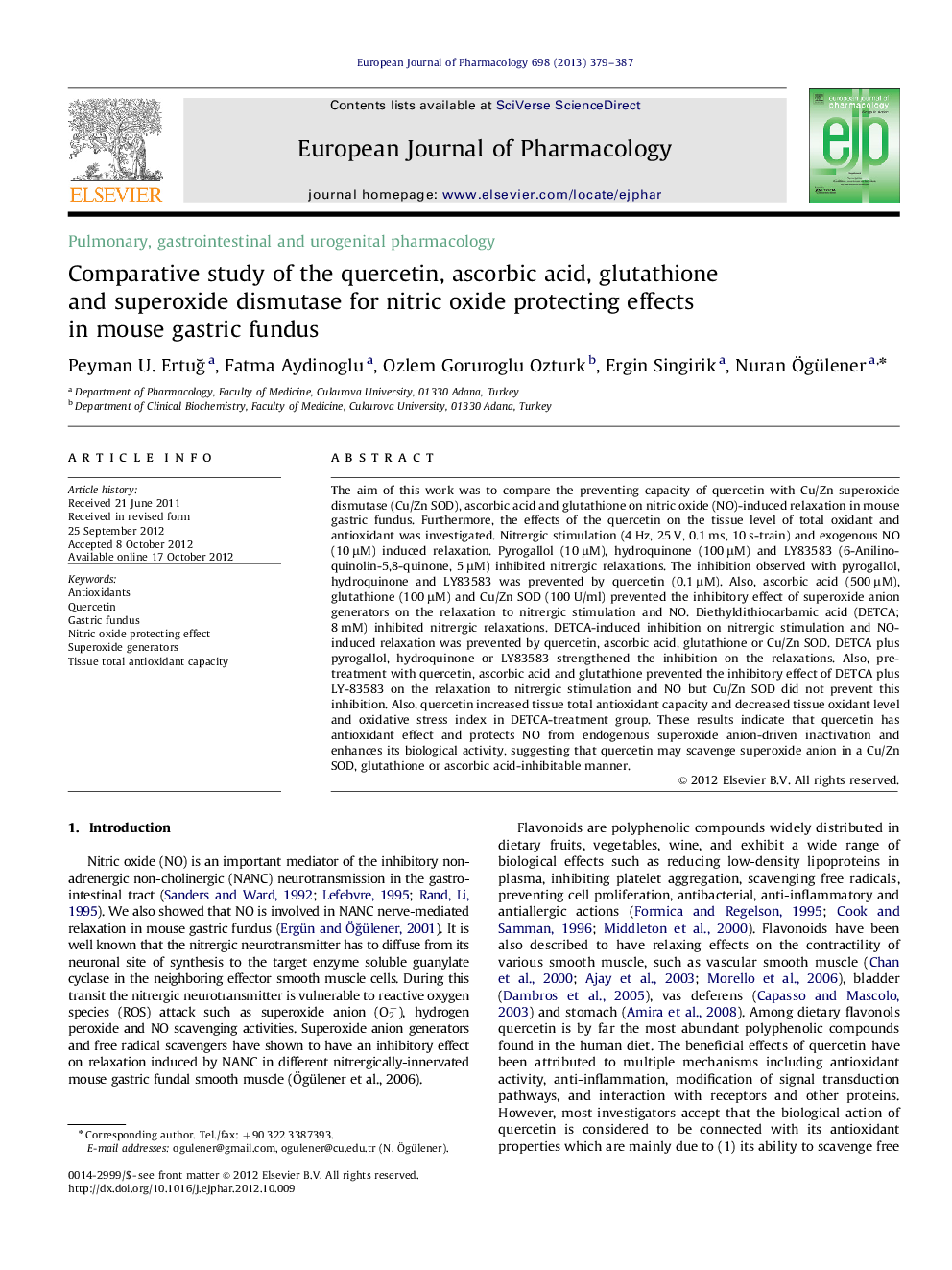| Article ID | Journal | Published Year | Pages | File Type |
|---|---|---|---|---|
| 5829011 | European Journal of Pharmacology | 2013 | 9 Pages |
The aim of this work was to compare the preventing capacity of quercetin with Cu/Zn superoxide dismutase (Cu/Zn SOD), ascorbic acid and glutathione on nitric oxide (NO)-induced relaxation in mouse gastric fundus. Furthermore, the effects of the quercetin on the tissue level of total oxidant and antioxidant was investigated. Nitrergic stimulation (4 Hz, 25 V, 0.1 ms, 10 s-train) and exogenous NO (10 μM) induced relaxation. Pyrogallol (10 μM), hydroquinone (100 μM) and LY83583 (6-Anilino-quinolin-5,8-quinone, 5 μM) inhibited nitrergic relaxations. The inhibition observed with pyrogallol, hydroquinone and LY83583 was prevented by quercetin (0.1 μM). Also, ascorbic acid (500 μM), glutathione (100 μM) and Cu/Zn SOD (100 U/ml) prevented the inhibitory effect of superoxide anion generators on the relaxation to nitrergic stimulation and NO. Diethyldithiocarbamic acid (DETCA; 8 mM) inhibited nitrergic relaxations. DETCA-induced inhibition on nitrergic stimulation and NO-induced relaxation was prevented by quercetin, ascorbic acid, glutathione or Cu/Zn SOD. DETCA plus pyrogallol, hydroquinone or LY83583 strengthened the inhibition on the relaxations. Also, pre-treatment with quercetin, ascorbic acid and glutathione prevented the inhibitory effect of DETCA plus LY-83583 on the relaxation to nitrergic stimulation and NO but Cu/Zn SOD did not prevent this inhibition. Also, quercetin increased tissue total antioxidant capacity and decreased tissue oxidant level and oxidative stress index in DETCA-treatment group. These results indicate that quercetin has antioxidant effect and protects NO from endogenous superoxide anion-driven inactivation and enhances its biological activity, suggesting that quercetin may scavenge superoxide anion in a Cu/Zn SOD, glutathione or ascorbic acid-inhibitable manner.
